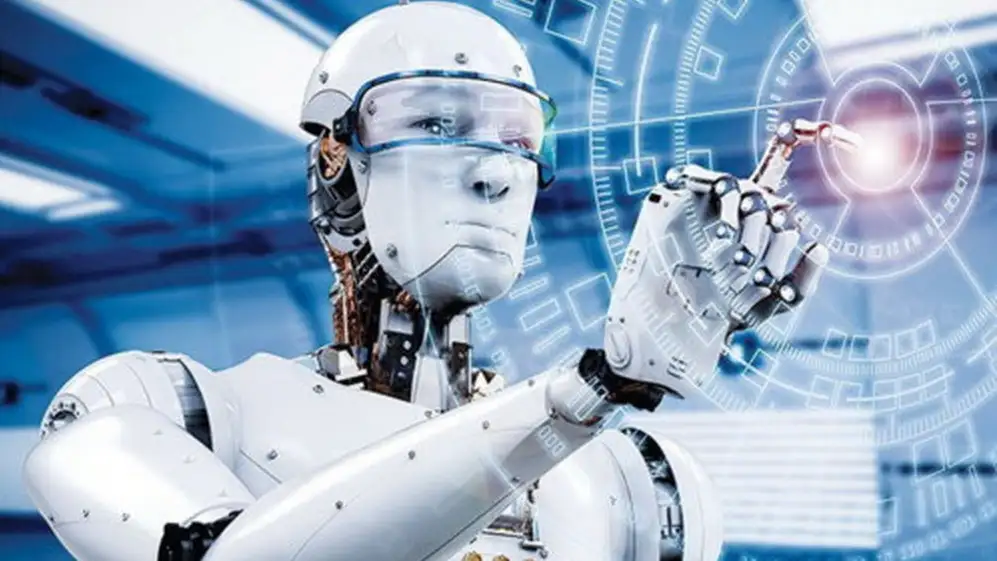How is AI Changing the Retail Industry?
Artificial Intelligence (AI) is rapidly changing the way retail businesses operate and serve customers. Thanks to AI, retail companies can improve business efficiency, from intelligent inventory management to personalizing the shopping experience. This not only helps businesses optimize costs but also improves customer satisfaction, thereby increasing revenue and competitiveness.
AI in retail is not just limited to online stores but is also present in physical stores, helping create a seamless shopping experience between both channels. From predicting customer needs to optimizing supply chains, AI is playing a major role in reshaping the future of retail.

Personalize the Customer Experience
One of the biggest applications of AI in retail is the ability to personalize the customer shopping experience. AI can analyze user data from previous transactions, shopping behavior, and online interactions to make relevant product recommendations. AI algorithms help businesses better understand customer needs, thereby creating more accurate marketing strategies and product recommendations.
For example, online sales platforms like Amazon use AI to recommend products based on each customer’s shopping history and personal preferences. This not only increases sales but also enhances the customer shopping experience, helping them find products easily and quickly.
AI can also assist in creating customized advertising campaigns, targeting the right audience with the right message at the ideal time. This helps to increase the effectiveness of marketing campaigns, optimize costs, and improve conversion rates.
Optimize Warehouse and Supply Chain Management
AI is bringing about major changes in warehouse and supply chain management in the retail industry. In the past, predicting product demand and managing inventory was difficult and required manual intervention. However, AI can predict product demand based on complex data models, thereby helping businesses minimize shortages or surpluses of goods.
AI systems can also automate ordering and distribution, ensuring that stores always have enough inventory to meet customer demand. This reduces operating time and costs, while improving flexibility in responding to fluctuations in market demand.
AI also assists in optimizing delivery routes, reducing transportation times and saving fuel costs. AI algorithms can predict potential problems in the supply chain, thereby helping businesses proactively resolve and minimize risks during operations.
Artificial Intelligence and Smart Stores
AI is not only changing inventory management and personalizing the shopping experience, it is also making physical stores smarter. Automated and unmanned stores use AI to monitor and manage every aspect of store operations. For example, image recognition and machine learning technologies are used to track customer shopping behavior in stores, thereby optimizing store layouts and recommending appropriate products.
Amazon Go is a prime example of a smart store where customers can shop without going through a traditional checkout counter. AI in stores like this helps recognize customers, track the products they choose, and automatically pay for them when they leave the store. This makes for a seamless and convenient shopping experience for customers.
Data Analysis and Trend Prediction
AI also plays a vital role in analyzing customer data and predicting market trends. Retail businesses can use AI to analyze data from various sources such as social media, e-commerce sites, and product review platforms. From there, they can make more accurate strategic decisions about products, pricing, and marketing.
Data analytics helps businesses not only better understand current customer needs but also predict future trends. This helps them better prepare for market fluctuations and stay competitive in a fierce retail environment.
AI – The Factor Revolutionizing the Retail Industry
Artificial intelligence is and will continue to play a major role in revolutionizing the retail industry. From personalizing the shopping experience, optimizing inventory and supply chain management, to creating smart stores, AI brings huge benefits to retail businesses. The widespread application of AI not only helps businesses improve efficiency and increase revenue but also brings great experiences to customers.
In the future, AI will become increasingly important in the retail industry as technologies continue to develop and improve. Businesses need to continue investing in AI to stay ahead of the competition and deliver the highest value to customers.


